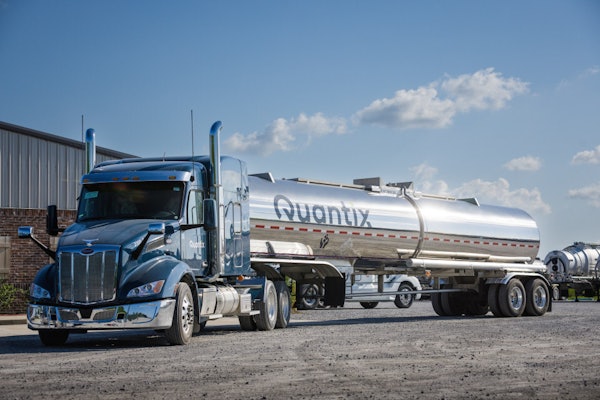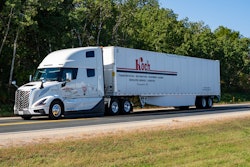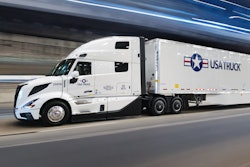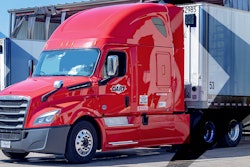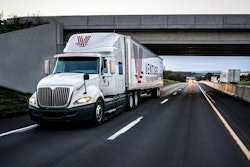Polystrand Inc. and Miles Fiberglass & Composites have jointly announced the development of durable corrugated panels they say could reduce maintenance and repair costs for refrigerated trailers. The product, made by Miles Fiberglass & Composites using material from Polystrand, originally was developed for refrigerated rail cars and now is being evaluated for internal bulkhead liners of truck trailers, which often are damaged during loading and unloading.
“Based on field experience so far in rail car use, the panels made with fully consolidated Polystrand reinforcement are the toughest panels available,” says Lowell Miles, chief executive officer of Portland, Ore.-based Miles Fiberglass & Composites. “They are stronger and more impact-resistant than any other panel we’ve seen.”
Miles says the benefit to the customer was that the life of the interior panels in a refrigerated rail car was extended exponentially. “We don’t know exactly how much more life the panels get, but the rail car leasing company reported a noticeable difference when cars with the new panels cycled back in for maintenance and repairs,” says Miles. “We understand the replacement and repair of panels went down to almost nothing.”
The manufacturing process for the new panel begins at Polystrand, where continuous E-glass fibers are consolidated with polypropylene resin to make ThermoPro X-Ply reinforcement tapes. Polystrand ships the material in rolls that are 60 percent continuous fibers by weight, aligned in a 0/90 degree orientation. At Miles, two rolls of Polystrand reinforcing material feed a laminating and forming process that heats and bonds the reinforcement, and then shapes the corrugated panels.
The companies say that in addition to producing stronger and more scuff-resistant panels, the new process provides a consistent, sealed surface with no pinholes, an important benefit when foam insulation is injected into the cavity between the panels and the exterior walls. The corrugated shape is designed to add strength and allow cold air to circulate within the car and around the cold cargo when the rail cars are in use.
“Multiple layers of Polystrand sheets or tapes can be stacked using the appropriate fiber, reinforcing content and orientation to meet the structural demands of a particular application,” says Ed Pilpel, president of Montrose, Colo.-based Polystrand. “The stacked material is then heated until formable and consolidated, then shaped and cooled to retain the configuration of the part.”
Pilpel says production scrap can be 100 percent reused, and the final part itself also can be 100 percent recycled in a sustainable, environmentally responsible or “green” materials management program. For more information, go to www.milesfiberglass.com and www.polystrand.com.



